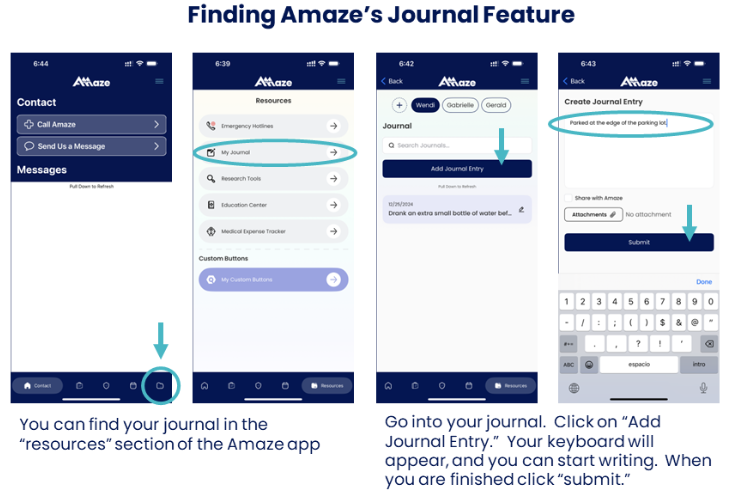
One Tiny Thing Guaranteed to
Make You Healthier a Year from Now
Lose weight. Quit smoking. Get fit. Get organized. Get more sleep. Be less sedentary. Eat healthier. Start meditating. Find a fulfilling hobby. Find a better job. Save more money. Even if you are not a New Year’s resolution person, this is the time of year when all of those fresh start possibilities threaten to drive you nuts. This is the week when people who would never dream of asking you what you would like to change about yourself have no problem asking what your New Year’s resolution is. And isn’t that precisely the same thing?
New Year’s resolutions are based on three basic, universal concepts:
- The end of the year is a good time to take stock of yourself.
- The beginning of a new year is the perfect time to start something new.
- When we take stock next year, we want to be somehow “better” than we are this year.
We’ve written about habit formation a number of times this year. Science tells us that habit change only happens in tiny, consistent steps. So why do we think that we are going to wake up on January 1st (or 2nd, depending on how much fun you had New Year’s Eve) and dive right into a new healthy habit? This is why most resolutions don’t last a week, let alone a month. To make matters worse, once you fall off the resolution wagon, you can’t help but have a few negative thoughts about your failed effort. This can actually serve to reinforce bad habits. After all, if your plan to cut out processed sugar from your diet has already been derailed, what difference does eating that donut make?
But suppose you could do one tiny thing every day that would guarantee that you will be healthier one year from now?
Here’s the Amaze challenge: Every single day, do one tiny healthy thing outside your usual routine and track it. Write it in a journal. Mark it on a calendar. Log it on a habit tracker. You can even put it in the “My Journal” section of your Amaze app. Whatever you choose for the day should be effortless and take little or no time – the tinier the better.
What to do?
For most of us being healthier boils down to several obvious categories:
- Eat healthier
- Move more
- Sleep better and longer
- Reduce stress levels
- Get more organized
- Set clear personal boundaries
- Reduce unhealthy behaviors
- Engage in self-care
- Save money
Keep this list and add anything else that suits you. Then, every day, do (or don’t do) one tiny thing that falls into one of the categories. For example, if you are someone who drops your belongings without thinking when you enter your home, one day, you might decide to hang up your coat. That’s your one healthy thing. You could eat a piece of fruit or a carrot during the day if you never do it. Stand up as soon as you think of it, just once, for a minute, if you usually sit at a desk all day. Have one less beer when you are out with friends, just one time. You could park a little farther away from your destination, take one set of stairs, or do one push-up. You don’t ever have to repeat a behavior. Just make sure to give yourself credit for it on the day you do it.
Other ideas:
- Go to bed 15 minutes earlier one night.
- Take three long, deep breaths before you answer an upsetting email.
- Say “no” to one favor that you really do not want to grant.
- Skip one coffee run and put the money aside.
- Cook one night instead of ordering food and put the money aside.
- Floss one night when you usually wouldn’t.
- Skip the pastry at one catered meeting.
We all know what is healthy. It is just so overwhelming to make wholesale changes to our behavior at any time of year. But one tiny healthy behavior every day is very doable. And making sure you record that behavior is an important part of the process.

Why is this guaranteed to work?
There is solid science behind this approach even outside the idea of tiny, micro, mini, or atomic habit formation.
The law of compounded positive behavior refers to the principle that consistently performing small, positive actions over time can lead to significant positive results, essentially building upon themselves to create substantial growth, much like compound interest in finance. This means that those tiny, almost meaningless behaviors you engage in during the course of a year make you a tiny bit healthier 365 times. Those little behaviors add up. If you were to measure your weight, heart health, A1C, stamina, fatigue level, strength, etc., at the beginning and end of the year, you would see significant benefits depending on which tiny actions you took.
Picking an unusual activity daily will profoundly enhance your brain health by increasing your brain plasticity. Every time we do something outside of our usual routine, we increase our brain plasticity, which keeps our brains young and vital.
This challenge allows us to find our achievable habit change goals. If you review your logged activities during the course of a month, a quarter, or a year, you will see that some choices were easy and easily repeated. These are the behaviors you can easily turn into healthy habits (if you haven’t already). You may have become a stair-lover or a salad eater without noticing it.
Finally, and perhaps most important, is the ongoing and tremendous change in your self-perception, which can help you succeed in almost anything you might try. Every behavior you log, no matter how small, is a victory. Logging that behavior is a tiny celebration of that achievement. Every book on habit change will tell you that believing you are capable of change is the single most important determinant of success. Do you want to be healthier? Well, you have proven that you can be healthier every single day. You won’t notice it day-to-day, but a year from now, you will not only be healthier, but you will also feel like a person capable of becoming even healthier with each passing day.
Pro tip: If you miss a day here and there, it’s not the end of the world. You might want to jot down why you missed it. More than likely, once you get started on this challenge, you will find yourself taking some quick de-stressing breaths or doing a stretch before you turn in because it will be easier than writing down why you didn’t.